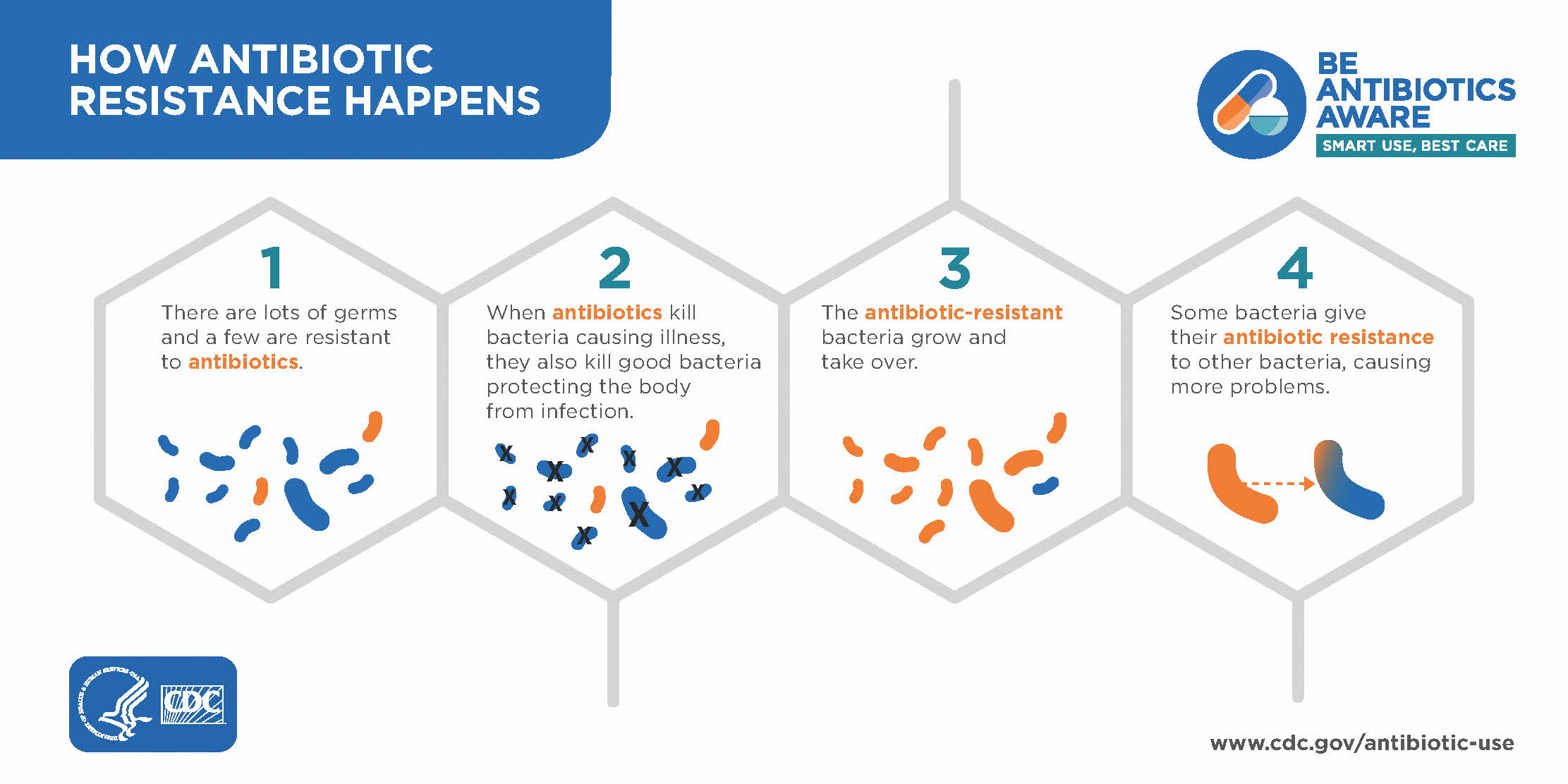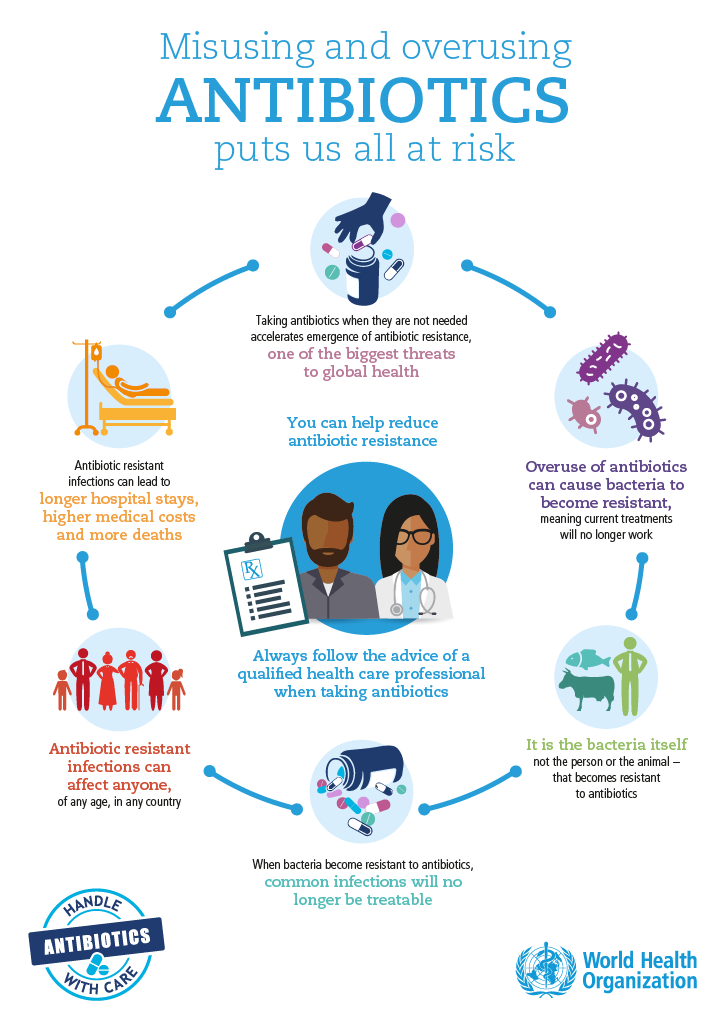About Antimicrobial Resistance
Learn about the problem of antimicrobial resistance (AMR) and when we should take antibiotics
On this page
What is antimicrobial resistance (AMR)?
Antimicrobials are medicines that are used to prevent and treat infections in humans, animals and plants. They include antibiotics, antivirals, antifungals and antiparasitics for microorganisms such as bacteria, viruses, fungi, and parasites.
AMR develops when these microorganisms are exposed to antimicrobials. To protect themselves, these microorganisms undergo changes that prevent antimicrobials from working effectively against them.

Poster by the Centers for Disease Control and Prevention
Why is AMR a concern?
As a result of developing resistance, antimicrobial-resistant microorganisms no longer respond to antimicrobial medicines. This makes infections harder to treat, increasing the risks of developing severe illness and death.
With new antimicrobial resistance mechanisms emerging and spreading globally, AMR threatens our ability to prevent and treat an increasing range of infections.
Without effective antimicrobials for prevention and treatment of infections, medical procedures (from transplants, chemotherapy, to surgeries) can become life-threatening. Around the world, healthcare systems are increasingly being put at risk.

Infographic by the World Health Organization
What are the consequences of misusing antibiotics?
Overuse or misuse of antibiotics can lead to antibiotic resistance. This reduces the effectiveness of antibiotics in treating infections, which can lead to undesirable consequences, such as:
Drug-resistant bugs: Bacteria become resistant to antibiotics designed to kill them.
Increased medical costs: Complications caused by antibiotic-resistant bacteria can increase hospital stay lengths and medical care costs.
Increased health risks: Without effective antibiotics, illnesses caused by antibiotic-resistant bacteria are harder or impossible to treat, which can lead to disability and death.
Left unchecked, AMR could cause as many as 10 million deaths worldwide by 2050 – higher than deaths attributed to cancer (8.2 million) and diabetes (1.5 million).
When are antibiotics required?
Antibiotics kill or slow the growth of bacteria. They are used to treat bacterial infections such as:
Strep throat
Whooping cough
Tuberculosis
When your doctor prescribes antibiotics to treat your bacterial infection, the benefits outweigh the risks. However, side effects may occur as antibiotics destroy both good and bad bacteria. Common side effects include:
Nausea or vomiting
Diarrhoea
Bloating
Loss of appetite
Your doctor may then prescribe probiotics alongside antibiotics to maintain and restore good bacteria. If you start developing other symptoms like allergic skin rashes due to the antibiotics and/or your side effects become worrisome, you should consult a doctor immediately.
Antibiotics DO NOT work on viruses that cause viral infections, such as:
Flu (Influenza)
Common cold
COVID-19
HFMD (Hand Foot Mouth Disease)
Instead of taking antibiotics when down with the common cold or flu, you should:
Get plenty of rest
Stay hydrated
Practise good hygiene habits to prevent the infection from spreading
Consult your doctor if you do not get better
Viral symptoms usually go away with time and symptomatic relief.
